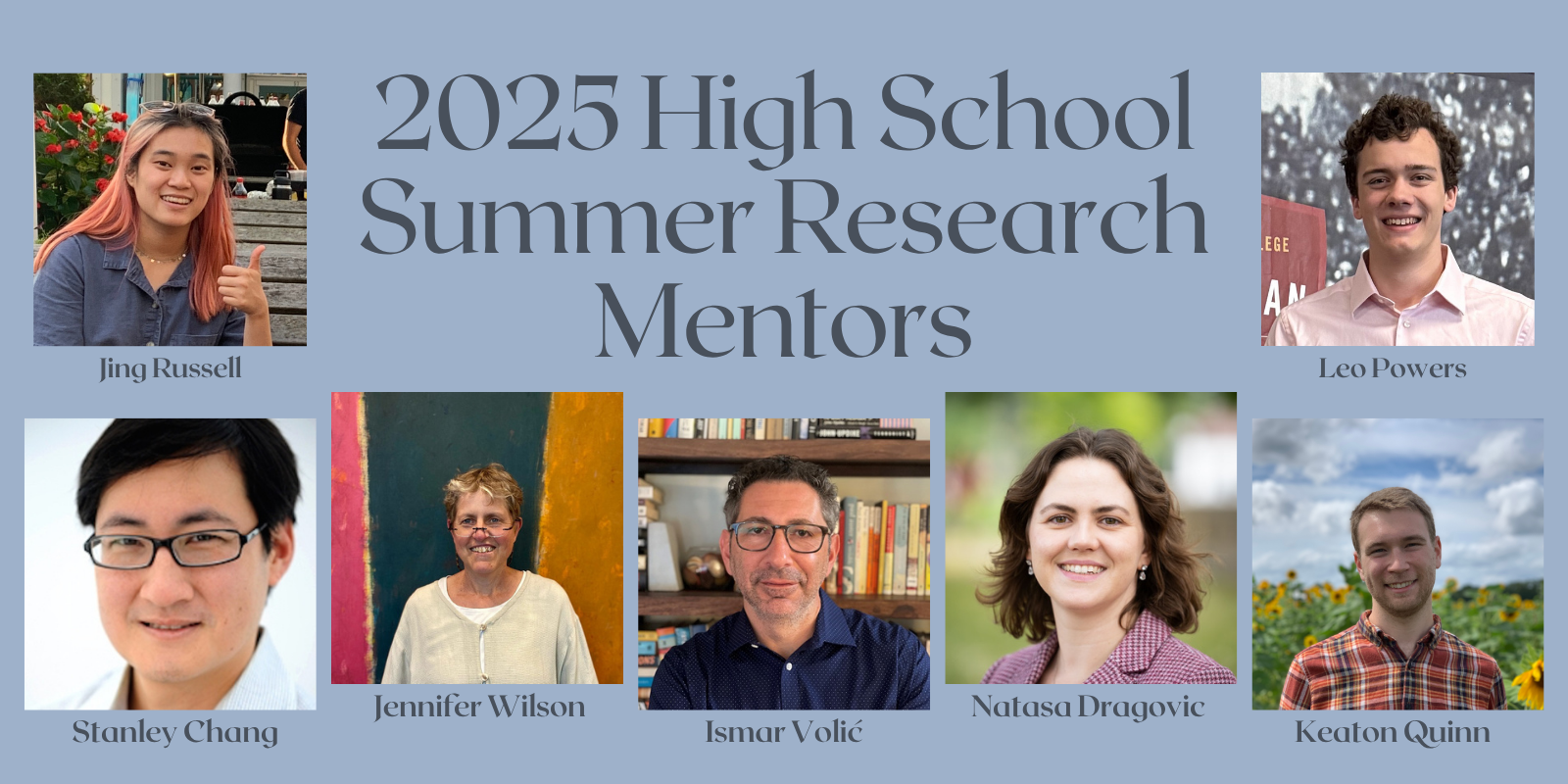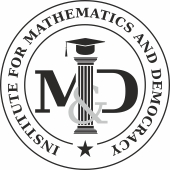2025 High School Summer Research Mentors
As IMD prepares for the 2025 high school summer research program, we would like to acknowledge and thank the mentors who will lead the projects. Each research group will consist of a mentor and a few students working together throughout the summer, with two of the groups including undergraduate teaching assistants.
IMD co-founder Stanley Chang is a professor of mathematics at Wellesley College. Jing Russell, a student at Amherst College and former IMD high school researcher, will work alongside Prof. Chang as a teaching assistant. Below is their project description.
“Our goal is to study weakly increasing ranked voting and perhaps to find ways to use poset and Moebius inversion theory to study them. Also we wish to examine stability and noise reduction in voting methods, i.e. votes that are counted incorrectly, using orthonormal systems and Fourier filtering. The hope is to use linear algebra and combinatorics heavily to arrive at some theorems.”
Natasa Dragovic (University of Saint Thomas) is interested in the intersection of probability and dynamical systems. Her research involves using mathematical models of opinion dynamics to make sense of political phenomena. See her project description below.
“We will study how voter opinions influence political candidates’ optimal positions. More specifically, we will look into three candidate elections. How often do we have the same winner whether the election is conducted under plurality voting or ranked choice? How are the candidates behaving under ranked choice when we consider different scenarios of voter opinions?”
Keaton Quinn (Wellesley College) is interested in the geometry of districting. His group will look into gerrymandering and the efficacy of redistricting in reducing it. This is his project description:
“We will study the isoperimetric inequality and its uses in attempting to detect gerrymandering (i.e., the Polsby Popper score of a district). We will then focus on explicitly computing these scores for maps before/after redistricting has been performed, as a potential way of determining if intentional redistrictings are effective at reducing gerrymandering.”
IMD co-founder Ismar Volić is a professor of mathematics at Wellesley College. This summer, his group will study proportional representation and multi-winner elections. The following outlines his project goals.
“This project will be about proportional representation and modeling multi-member districts in the United States. The main question is whether a generalization of ranked choice voting to multi-winner elections, called single transferable vote, would yield more representative outcomes. We will also model party list systems used in most of the world’s democracies and see whether their implementation in the U.S. is feasible.”
Jennifer Wilson, Associate Professor of Mathematics at the New School, has research interests spanning various applications of mathematics to politics and voting systems. Leo Powers, a student at Oberlin College studying mathematics and politics, will be her teaching assistant. They plan to “study Bloc Voting and other multi winner voting methods using a one-dimensional spatial model to represent political opinions” and to “look at the methods from both a theoretical (fairness) perspective and a quantitative perspective.”
Thank you to all of the mentors and teaching assistants for their integral roles in the program. We look forward to seeing the work their teams will do this summer. Stay tuned for more research updates!



